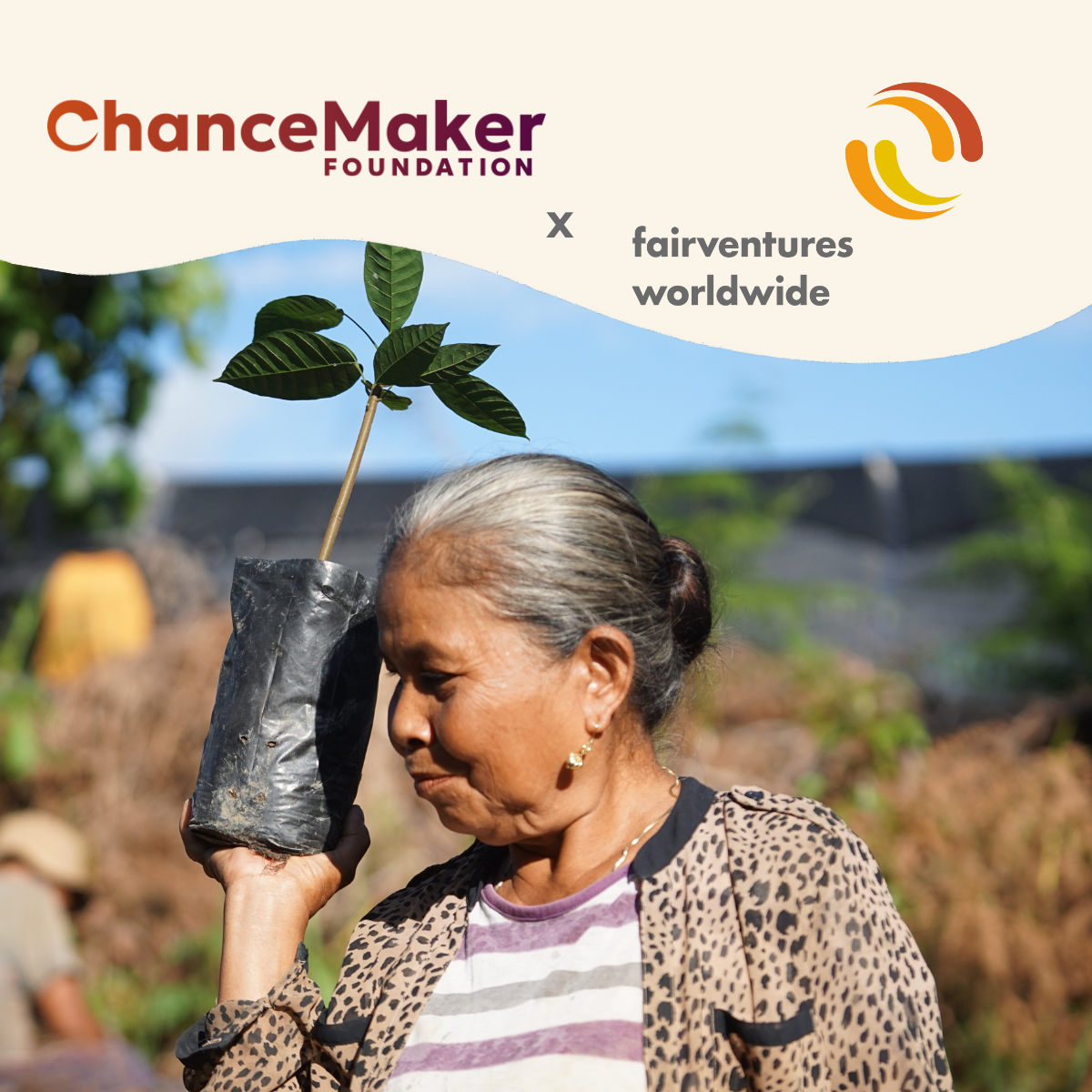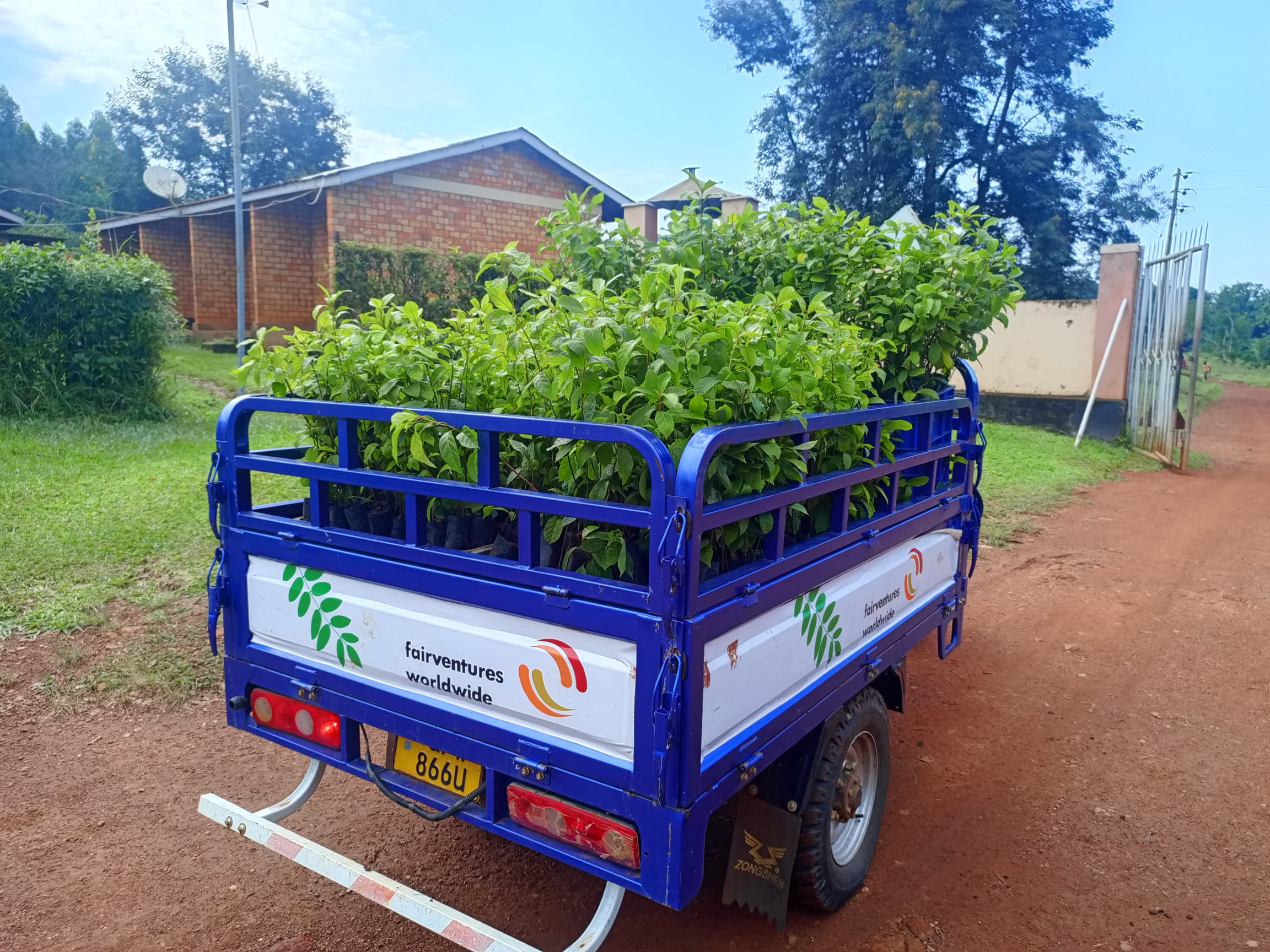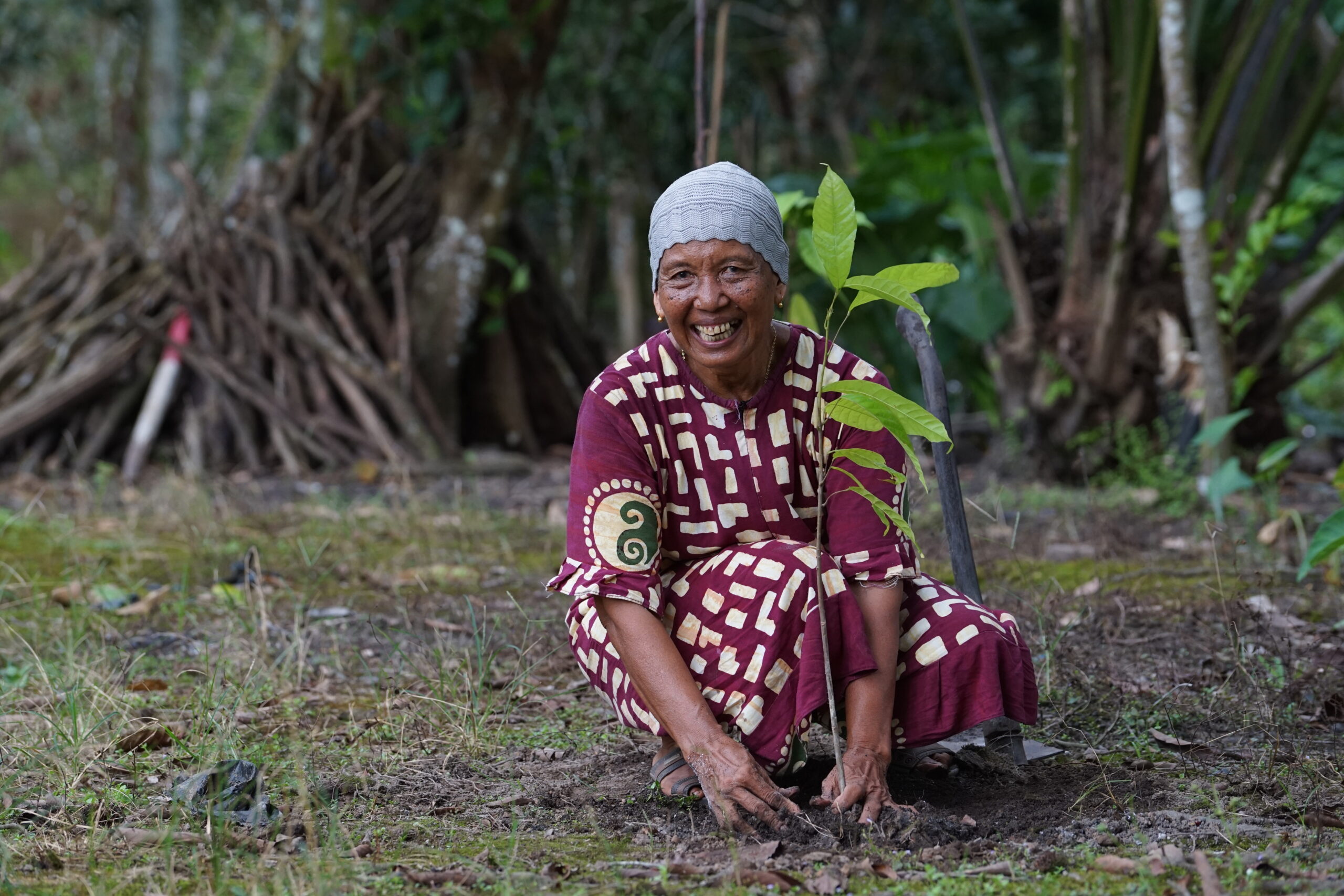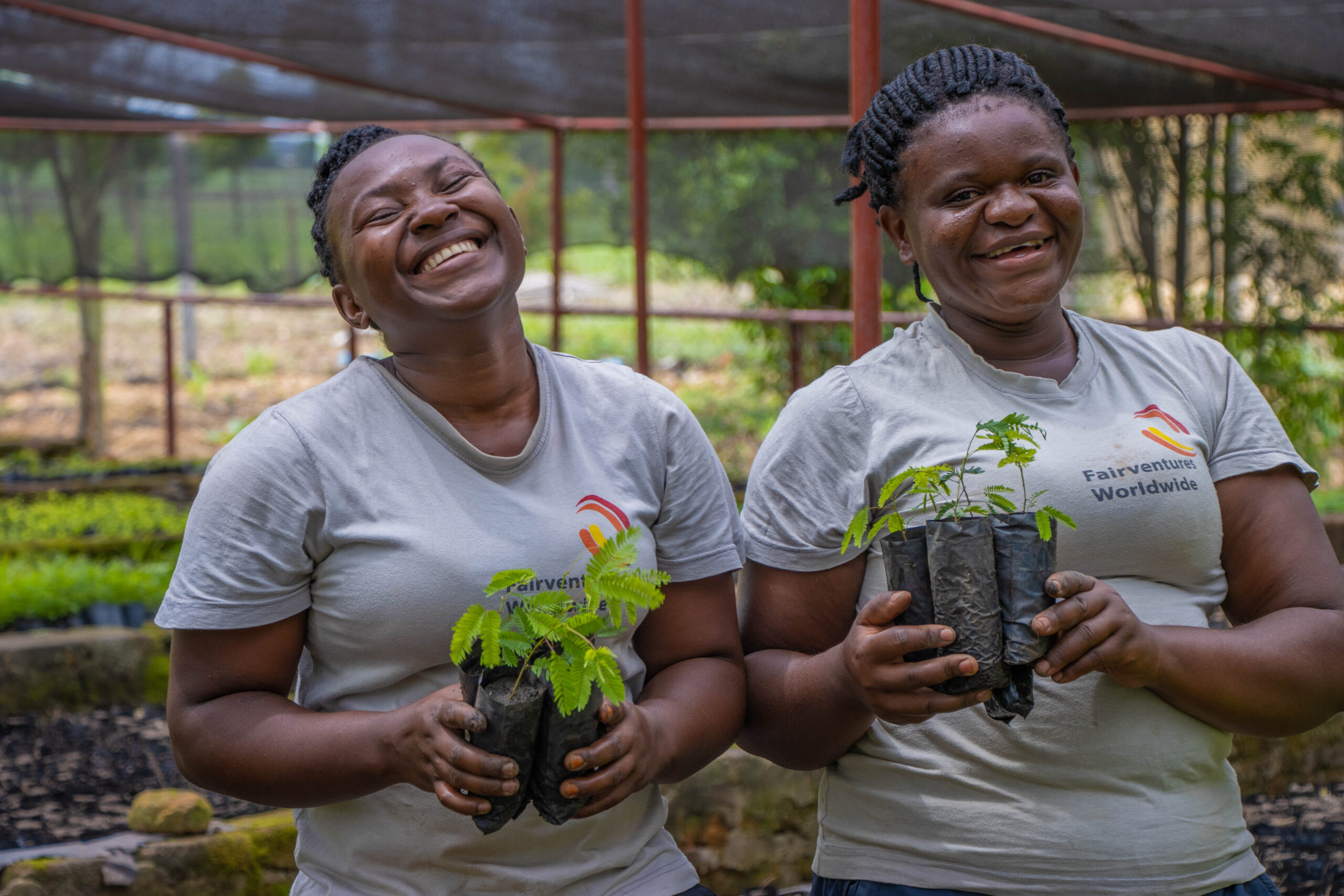The ChanceMaker Foundation has been supporting the ChanceMakers of Fairventures Worldwide (FVW) since 2022, linking the two organisations in a long-term partnership that is reflected in the way they support each other and in their mutual understanding. In this blog post, we take a closer look at the partnership from both perspectives.
A Common Vision: The Cornerstone of Success
“Good forests are climate solutions” – the vision of FVW aligns perfectly with the guiding principles of the ChanceMaker Foundation. The foundation’s aim is to promote a just and liveable future in which all people can lead a self-determined life within planetary boundaries.
Both organisations share the conviction that people, nature and animals should develop and flourish together in an intact ecosystem. Fairventures’ approach of creating both environmental and socio-economic benefits through sustainable forestry is in line with the ChanceMaker Foundation’s philosophy of promoting interlinked and holistic actions that turn disadvantaged people into ChanceMakers for a sustainable world.
The essence of any close collaboration is a shared trust in the same vision and a common understanding of each other’s needs and expectations. In this case, both organisations understand that tackling the interlinked challenges of poverty, climate change and biodiversity loss requires innovative solutions that combine ecological regeneration with the creation of sustainable livelihoods for local communities.
The essentiality of long-term planning for sustainable change
One of the most important advantages for FVW is the long-term planning security provided by the ChanceMaker Foundation’s multi-year support. The ChanceMaker Foundation focuses on supporting the entire organisation and not just individual, narrowly defined activities.
It is important to mention that the funds are not used without proof. Rather, a certain flexibility in the use of funds allows FVW to react to unexpected changes – because, unfortunately, theory does not always work in practice.
A concrete example is the increasing variability of weather cycles in countries such as Uganda. Unpredictable rainfall makes it difficult to plan plantings. FVW wants to be able to respond quickly and in a solution-oriented manner to local conditions – sadly, that kind of activities are often only possible to a limited extent within rigid budgets with strict spending criteria.
Of course, the long-term goals of the organisation and strategic considerations also play a role:
- Where does FVW want to be in 3 years?
- What will it take to get there?
- What challenges might arise?
- How will the impact be measured?
Flexible ‘milestones’ were defined from the outset to ensure that the targets were met. These were initially proposed by FVW and then finalised together with the ChanceMaker Foundation. A key element of this collaboration is the shared understanding that milestones that are two years or more in the future in particular must remain adaptable.
This adaptive approach ensures that new insights gained by FVW over time can be continuously incorporated into the target alignment. This maximises the impact of the resources deployed.
Failure to meet individual milestones does not automatically lead to the end of funding. Rather, such situations are seen as valuable opportunities to identify challenges together, to discuss them openly and to look for effective solutions together. This problem-solving culture not only strengthens the internal partnership between FVW and the ChanceMaker Foundation, but also leads to more sustainable and effective interventions that benefit local people and regional biodiversity.
The Key to Effective Reporting
Another important factor is the design of the reporting. Many funding programmes are limited in terms of time or location. In particular, funding periods of less than 18 months and detailed reporting requirements represent an enormous administrative burden for small organisations. In extreme cases, this can lead to certain funding applications not being submitted at all.
Wolfgang Baum, Co-CEO of Fairventures, underlines:
‘Our work is difficult to represent in time-limited project units. Measuring the impact of reforestation projects takes time – a tree may grow quickly in the tropics, but it doesn’t overnight.’
The ChanceMaker Foundation does not provide FVW with a strictly defined reporting format, but clarifies the foundation’s expectations in a joint discussion and otherwise gives FVW a free hand. Interim reports are produced every six months, which address impact measurement and the milestones set, as well as documenting current developments in Indonesia and Uganda. This allows FVW to report more openly on progress and challenges and the ChanceMaker Foundation gains deeper insights into the context and current developments of the work.

Stable Funding as the Foundation for Sustainable Impact
A stable core funding structure relies on multiple pillars. In addition to donations, FVW is primarily financed through institutional donors and corporate sponsorships. However, most of these funds are earmarked for specific purposes, leaving little room for essential activities such as strengthening internal structures or covering overhead costs like rent and public relations.
This is why receiving institutional funding with greater flexibility is particularly valuable for FVW. It enables long-term planning, providing the organization with more stability and the ability to act effectively.
Why the ChanceMaker Foundation Focuses on Deep Partnerships
From the perspective of the ChanceMaker Foundation, long-term, strategic partnerships are the key to achieving far-reaching impact and sustainable, positive change for people, nature, and animals. Maximum transparency and mutual trust play a crucial role in this approach.
Patrick Knodel, Chairman of the ChanceMaker Foundation, emphasizes:
“We firmly believe that effective change takes time and requires a partner who not only provides funding but also offers guidance. If we want organisations like Fairventures to develop innovative solutions for complex challenges, we must give them the space to experiment, learn, and adapt. That is why we prioritize long-term partnerships built on a high level of flexibility and trust.”
Sustainable impact requires long-term support and critical engagement. Through intensive, long-standing collaborations, the ChanceMaker Foundation gains a deeper understanding of the context and challenges of each ChanceMaker initiative. Beyond financial support, the foundation provides valuable feedback and constructive suggestions for improvement – offering a level of support that goes far beyond mere grant-making.
The ChanceMaker Foundation is convinced that the initiatives it supports should be able to focus on their core mission – creating impact – rather than being constantly preoccupied with funding concerns. Unfortunately, in the foundation landscape, long-term and unrestricted funding remains rare. The foundation aims to set a positive example and establish new standards in this area.
Another key aspect is the vision of a strong network of partners across the foundation’s five focus areas. The ChanceMaker Foundation seeks to support these partners over the long term and grow alongside them. This approach fosters shared learning and the development of innovative solutions that can be scaled to reach even more people.
Long-term funding combined with a culture of open feedback creates trust, enabling partners to tackle problems and challenges together. Many other foundations prioritize tight control over flexibility and trust, often missing out on the honest feedback that the ChanceMaker Foundation receives from its partners. This transparency is fundamental to successful collaboration, allowing both sides to continuously learn and evolve.
Joint outlook
Over the past three years, we have already achieved a lot together. Thanks to our partnership, thousands of smallholder farmers in Uganda and Indonesia have been able to open up new income opportunities; a total of 1,035 hectares of land have been protected and restored.
Another success story of our cooperation is the opening of the unique Timber Innovation Centre in the heart of Kampala. The Timber Centre brings together experts and stakeholders from the forestry and construction sectors to promote sustainable timber construction in Uganda.
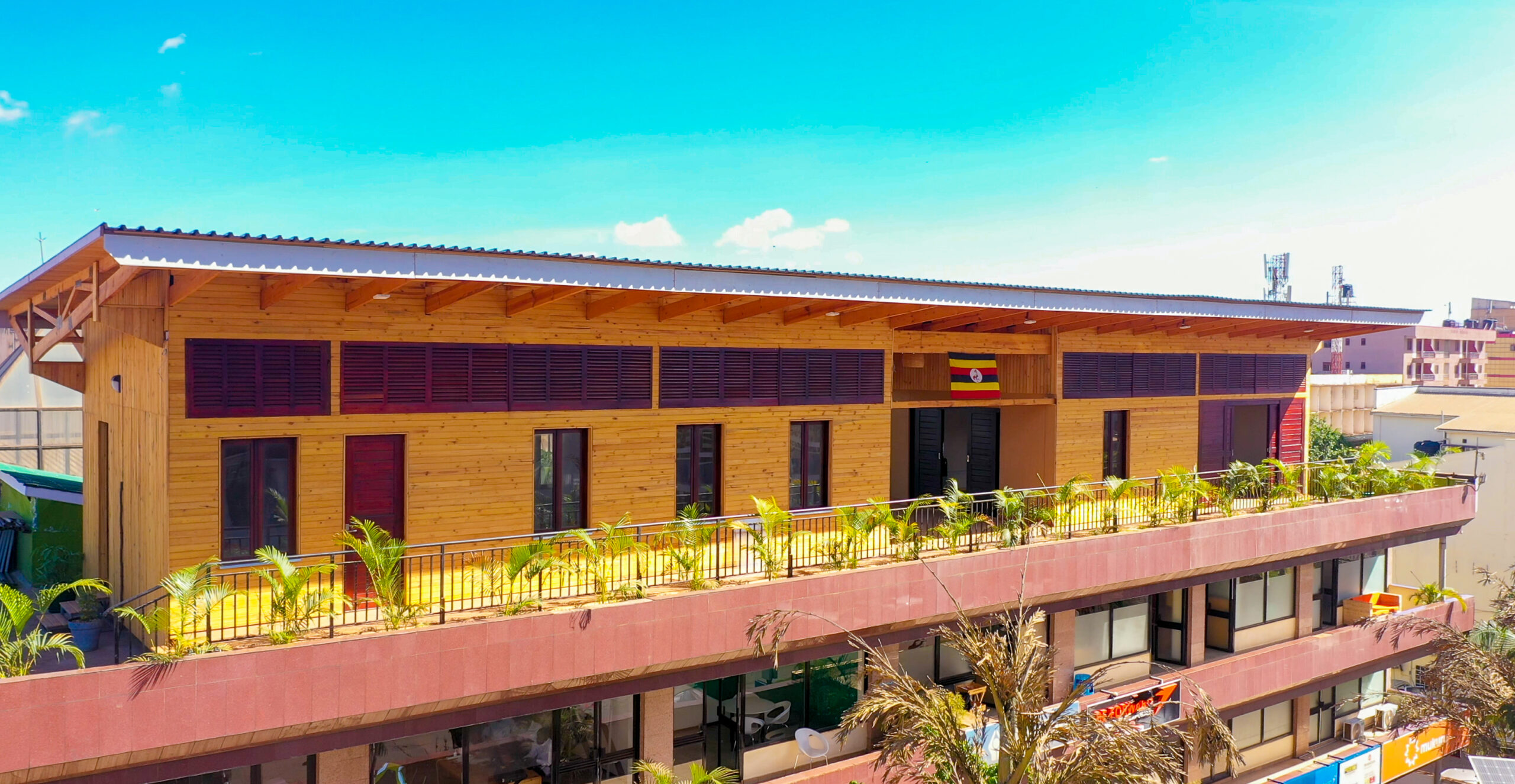
As a flagship of our work and shared vision, the centre showcases the aesthetic beauty, innovation and strength of wood as a building material that sequesters carbon and can replace environmentally harmful materials such as concrete or plastics. Both organisations are looking forward with great anticipation to the coming years, in which FVW will continue its work in both countries and establish further sustainable value chains together with smallholder farmers.
